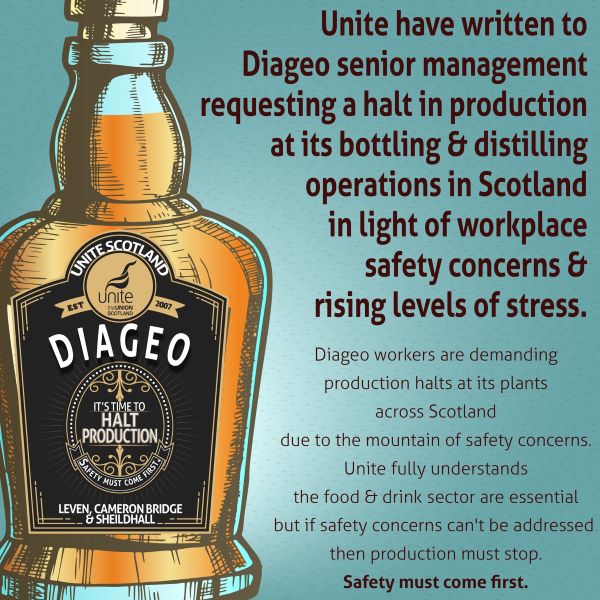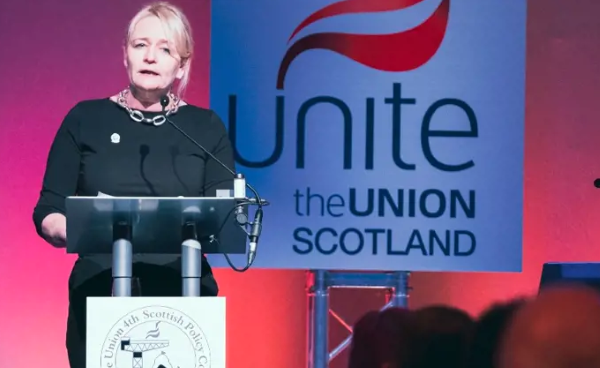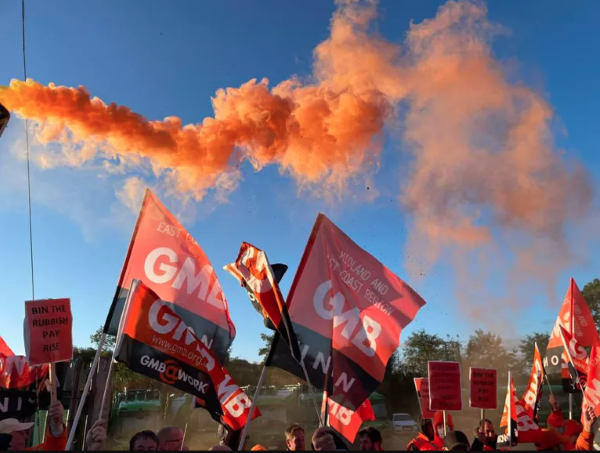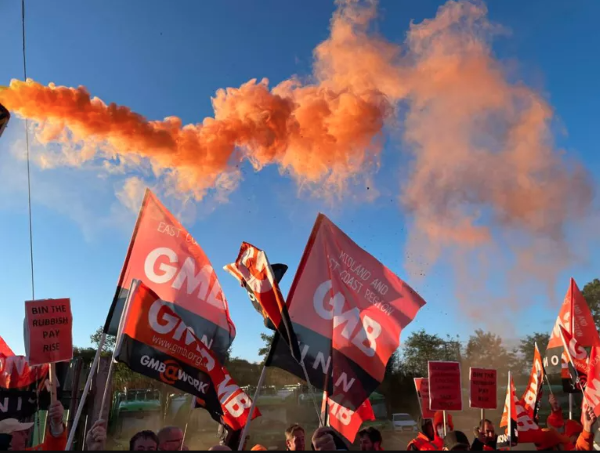Trouble on the Shop-Floor
The Scotch industry has been in the news with talk of possible strike action, most recently at Dewar's and Whyte & Mackay. Yet, as Ian Fraser reports, a greater fear for workers and unions is of any prolonged downturn leading to layoffs …
As the whisky loch was drying up in the 1990s, industrial relations in the whisky industry could hardly have been better. In a December 2000 report for the House of Commons, Professor Mike Danson and Geoff Whittam of the University of Paisley wrote: "The Scotch whisky industry is characterised by good industrial relations. Both management and unions spoke of 'mutual respect' and 'mature attitudes'."
The academics added: "The industry is associated with well-paid jobs, a skilled workforce with good conditions of work and training opportunities. The prevalent attitude in the industry is one of cooperation and partnership." However, Danson and Whittam warned that the positive industrial relations in the industry "need to be protected by an inclusive partnership between the companies, the trades unions, suppliers and communities".
That notion of an "inclusive partnership" was not immediately obvious in 2009 when Diageo, under its former CEO Paul Walsh, decided to close its Johnnie Walker bottling plant in Kilmarnock with the loss of up to 700 jobs. The move sparked fury among residents of the Ayrshire town (the top-selling Scotch brand's "spiritual home" since 1820) and among workers, trade unions and a number of politicians.

Some 20,000 people marched through the streets of Kilmarnock in July 2009 in a bid to persuade Diageo to reverse its decision. "I don't take the view that because a multinational company has made a decision, we can't change it," declared Unite assistant general secretary Len McCluskey. "We can. People-power and organised labour can change it – and we intend to change it." The protest was also addressed by Scotland's then first minister Alex Salmond, Scottish Conservative leader Annabel Goldie and Kilmarnock Labour MP Des Browne. However, Diageo held firm and the vast majority of the Kilmarnock plant's employees eventually accepted redundancy packages or gained jobs at other Diageo sites.
Even though relations between distillers and their workforces have improved, there are signs that friction is returning, with recent flare-ups at firms including Diageo, Chivas Brothers, John Dewar & Sons and Whyte & Mackay. These have invariably been fuelled by pay offers which have fallen short of inflation during the cost-of-living crisis.
There is expected to be a "a summer of strike action" at Whyte & Mackay in coming days. After voting "overwhelmingly" for strike action, GMB members at the Dalmore, Invergordon and Tamnavulin distilleries are poised to walk out on June 24th, followed by eleven further days of strike action in July and two weeks in August. This followed widespread dissatisfaction with pay offers made by the Philippines-owned company. GMB Scotland organiser Lesley-Anne MacAskill, said: "Our members united and determined their work is fairly recognised… While Whyte & Mackay celebrate commercial success, our members continue to be paid less than other workers in the industry. Enough is enough."
The next flashpoint will come at Bacardi-owned John Dewar & Sons, where GMB Scotland is poised to ballot its members following claims the company withheld a pay rise from 17 workers. GMB members had voted to accept a 6.9% pay increase, after the vote, discovered that owing to a "pay grade system" of Dewar's Bermuda-based owner Bacardi, the full increase could not be applied to the salaries of a small number of workers. GMB Scotland senior organiser Gary Cook, said: "Of course, the 17 workers should be given the same rise as their colleagues. This is also about trust between workers and management."

With strike action at Dewar's hanging in the balance, the action threatened by both GMB and Unite at Diageo back in July to September 2019 did not, initially, materialise thanks to a pay offer from the company. However starting in January 2023, Diageo's packaging plant in Leven was subjected to weekend stoppages after Unite claimed some engineering staff had been unlawfully induced to sign new contracts which caused them to lose around 6% of their pay. Throughout spring 2023, there were weekend walkouts among engineering staff at Leven as well as protests outside Johnnie Walker Princes Street. Diageo told the Press Association it was not introducing a lower rate of pay for new starters and said the dispute related to shift arrangements for the people taking industrial action.
Ahead of Christmas 2023, there was a threat of unrest at Chivas Brothers sites across Scotland. After 91.2% of relevant workers voted in favour of strike action, around 800 members of GMB and Unite employed by Chivas Brothers, maker of Ballantine's, Royal Salute and The Glenlivet, were due to walk out in the run up to Christmas, amid fears festive supplies might be disrupted. The action followed Chivas' alleged refusal to revise a previous pay rise offer of 6.4% at a time when inflation stood at over 11%. GMB Scotland's David Hume said: "Our members made clear they wouldn't accept a pay rise which was, in reality, a pay cut."
The strike action was to have involved rolling 24-hour stoppages across Chivas Brothers facilities on 11th-14th December 2023 plus an overtime ban and short notice shifts bans. However, the strikes were called off when, on 14th December 2023, Unite confirmed its members had secured a two-year pay deal from the Pernod Ricard-owned business. Unite industrial officer Andy Brown says: "Ultimately, the two-year deal we secured is equivalent to a pay rise of about 12 per cent. We were pleased to have negotiated this and that it was overwhelmingly accepted by the membership bringing the dispute to an end."
Brown insists that he and other union leaders see striking as a last resort. "Taking our members out on industrial action is the last thing we want to do. We want to avoid that wherever possible. In general, we have a really good relationship with Chivas – they're responsible, and they invest in their employees. They also take their responsibility to the community very seriously."

"Terms and conditions in the whisky industry are among the best of any sector, and we'd love to see them expanded into other areas. In terms of our relations with companies such as Chivas Brothers, Diageo and Beam Suntory – we tend to go into meetings in other workplaces and say that's the model you want."
The main cloud on the horizon for Brown is the threat of further site closures, slowdowns and redundancies, which are a possibility if the downturn in global Scotch sales seen last year were to continue. "There is a sense of trepidation about possible layoffs linked to current and future downturns in sales of Scotch," says Brown.

Ian Fraser is a financial journalist, a former business editor of Sunday Times Scotland, and author of Shredded: Inside RBS The Bank That Broke Britain.




